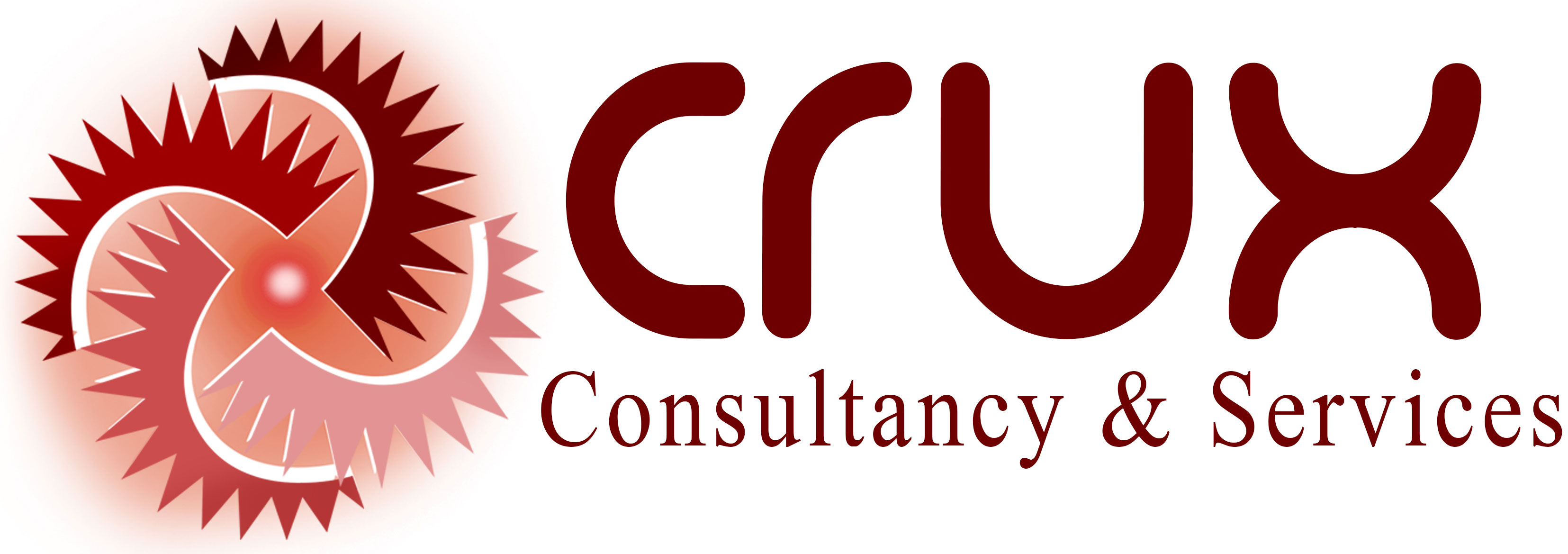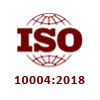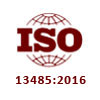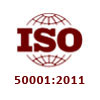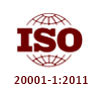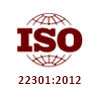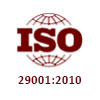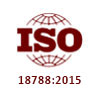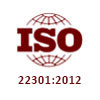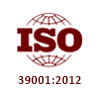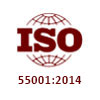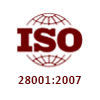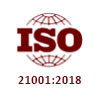Other Certification
ISO 10004:2018 (Customer satisfaction – Quality management) :
ISO 10004:2018 provides guidance in defining and implementing processes to monitor and measure customer satisfaction.ISO 10004:2018 is intended for use by organizations regardless of type, size or product provided. The focus of ISO 10004:2018 is on customers external to the organization.

Advantages :
• ISO 10004 provides guidance in defining and implementing processes to monitor and measure customer satisfaction. Obtain information on new expectation, resolving complaints to the satisfaction of the complainant and the organization.
• Identify trends and therewith eliminate causes of complaints, encourage personnel to improve their skills in working with customers, basis for continual review and analysis of the complaints-handling process.
ISO 13485:2016 (Medical devices – Quality management systems) :
ISO 13485:2016 specifies requirements for a quality management system where an organization needs to demonstrate its ability to provide medical devices and related services that consistently meet customer and applicable regulatory requirements. Such organizations can be involved in one or more stages of the life-cycle, including design and development, production, storage and distribution, installation, or servicing of a medical device and design and development or provision of associated activities. ISO 13485:2016 can also be used by suppliers or external parties that provide product, including quality management system-related services to such organizations.
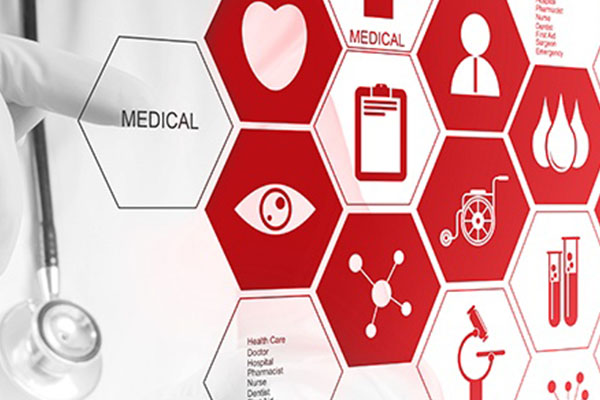
Advantages :
• Increased access to more markets worldwide with certification.
• Outline how to review and improve processes across your organisation.
• Increase efficiency, cut costs and monitor supply chain performance.
• Demonstrate that you produce safer and more effective medical devices.
• Meet regulatory requirements and customer expectations.
ISO 50001:2011 (Energy Management System) :
ISO 50001 : 2011 is a Standard of requirements which deal with the energy impact of your organisation.
ISO 50001 : 2011 is based on the management system model of continual improvement also used for other well-known standards such as ISO 9001 : 2015 or ISO 14001 : 2015. This makes it easier for you to integrate energy management into their overall efforts to improve quality and environmental management.

Advantages :
• Works from large to small organisations across diverse commercial, industrial and public sectors
• Improved cost savings.
• Improves operations and capital cost decisions.
• Improves transparency and communication on the management of energy resources.
• Can improve working environments.
ISO 20001-1:2011 (Information Technology Service Management) :
ISO 20000-1 : 2011 is a Standard of requirements that defines how an organisation controls it’s service provision in terms of the design, transition, delivery and improvement of services that provide value for both the customer and the service provider. It is based around four key service management processes – Service Delivery, Control, Resolution and Relationship Management.
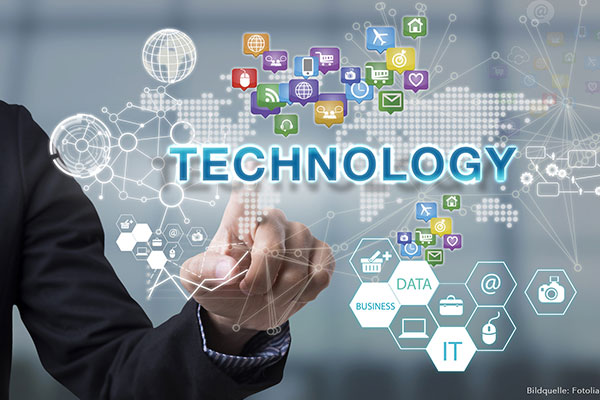
Advantages :
• Achieve international best practice standards of IT service management.
• Develop IT services that are driven by and support business objectives.
• Integrate people, processes and technology to support business goals.
• Put in place controls to measure and maintain consistent levels of service.
• ISO/IEC 20000-1 : 2011 is compatible with ITIL to support continual improvement.
ISO 22301:2012 (Business Continuity Management) :
ISO 22301 : 2012 specifies requirements to plan, establish, implement, operate, monitor, review, maintain and continually improve a documented management system to protect against, reduce the likelihood of occurrence, prepare for, respond to, and recover from disruptive incidents when they arise.

Advantages :
• Improving your resilience against disruption.
• Maintaining an ability to manage uninsurable risks.
• Developing a capability to manage business disruption.
• Minimising consequences of unexpected disruptions.
• Providing a method of restoring your ability to supply key products and services.
• Protecting and enhancing your reputation and brand.
• Gaining a competitive advantage by demonstrating the ability to maintain delivery of your products and services.
ISO 29001:2010 (Petroleum, petrochemical and natural gas industries – Sector-specific quality management systems) :
For organisations working within the oil and gas industry, certification to ISO 29001 represents a significant opportunity for standardisation and improvement. First published in 2003, it was developed by ISO and the international oil and gas industry, led by the American Petroleum Institute (API).

Advantages :
• Best practice.
• It is envisaged that ISO 29001 will become the common basis for the industry’s quality management systems requirements worldwide. This will help reduce or eliminate multiple assessments. This provides additional benefits in the reduction of disruption to the business, associated paperwork and costs.
• Competitive edge.
• Increasingly, organisations within the supply chain will need ISO 29001 certification to demonstrate their commitment to quality, helping secure new business contracts.
• Continual improvement.
• Certification to ISO 29001 provides continual improvement; emphasising defect prevention and the reduction of variation and waste in the supply chain, including those from service providers.
ISO 18788:2015 (Security Operations Management System) :
SO 18788 specifies the requirements and provides guidance for organizations that conduct or contract security operations. Moreover, it provides a framework for establishing, implementing, operating, monitoring, reviewing, maintaining and improving a Security Operations Management System. It enables the constant development of security services, while ensuring customer safety and respect for human rights. This standard demonstrates compliance with laws and regulations, respect for human rights, and the establishment of professional security operations to better meet the customer’s and stakeholder’s needs.
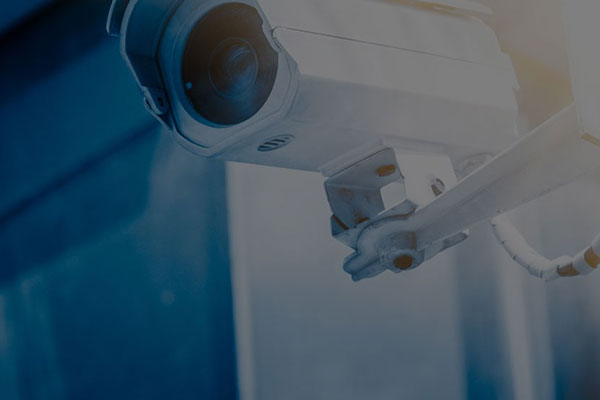
Advantages :
• Provide reliability and establish effective Corporate Governance.
• Strengthen credibility and protect reputation.
• Ensure the quality and professionalism of security organizations.
• Establish sustained customer improvements.
• Provide confidence to customers, governments and communities.
• Increase the potential of operational success.
ISO 22301:2012 (Societal security – Business continuity management systems) :
The ISO 55001 standard guides businesses to control and manage the life-cycle of an asset. Depending on the type of the asset, the life-cycle of assets goes throughout different stages such as acquisition, construction, operation, and maintenance. Hence, ISO 55001 can be applied to all sizes or businesses and all types of assets.
Organizations that have adopted ISO 55001 realized huge benefits after its implementation. The standard will help towards the boost of organization’s efficiency and effectiveness of the system and most importantly reach objectives by focusing on risk and cost.
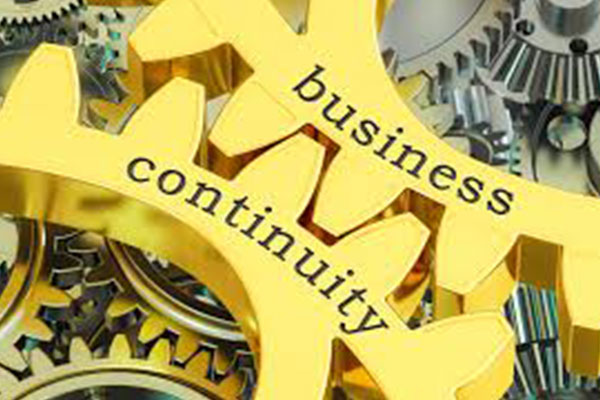
Advantages :
• Improved performance of an asset management and control of its life-cycle.
• Reduced risks and costs related to assets ownership.
• Identifies and encourages more efficient and time saving processes.
• Provides and maintains business growth.
• Improved organizations performance.
• Improved quality of products and/or services.
• Planned long term investment opportunities.
• Improved communication and relation among departments.
• Improves the reputation of the organization.
ISO 39001:2012 (Road Traffic Safety Management Systems) :
This standard is created to have a considerable impact on the future of traffic safety and increase the awareness of speed, vehicle and driver condition. Concerning the social role, ISO 39001 is a journey to make our roads safer place to travel.

Advantages :
• Improves company image.
• Reduces traffic accidents.
• Improves productivity.
• Improves working environment which leads to higher employee satisfaction.
• Cost reduction on vehicles.
• Competitive advantage toward your competitors.
• Competitive advantage in tenders.
• Less administrative procedures with insurance companies.
• Commitment to Corporate Social Responsibility.
ISO 55001:2014 (Asset Management Systems) :
The ISO 55001 standard guides businesses to control and manage the life-cycle of an asset. Depending on the type of the asset, the life-cycle of assets goes throughout different stages such as acquisition, construction, operation, and maintenance. Hence, ISO 55001 can be applied to all sizes or businesses and all types of assets.
Organizations that have adopted ISO 55001 realized huge benefits after its implementation. The standard will help towards the boost of organization’s efficiency and effectiveness of the system and most importantly reach objectives by focusing on risk and cost.

Advantages :
• Improved performance of an asset management and control of its life-cycle.
• Reduced risks and costs related to assets ownership.
• Identifies and encourages more efficient and time saving processes.
• Provides and maintains business growth.
• Improved organizations performance.
• Improved quality of products and/or services.
• Planned long term investment opportunities.
• Improved communication and relation among departments.
• Improves the reputation of the organization.
ISO 28001:2007 (Supply Chain Security Management Systems) :
ISO 28000 specifies the requirements for a security management system, including those aspects critical to security assurance of the supply chain. ISO 28000 certification is applicable to all sizes of organizations, from small to multinational, in manufacturing, service, storage or transportation at any stage of the production or supply chain.
By becoming certified against ISO 28000, your organization will ensure that threats coming from logistical operations and supply chain partners are being managed and controlled securely.
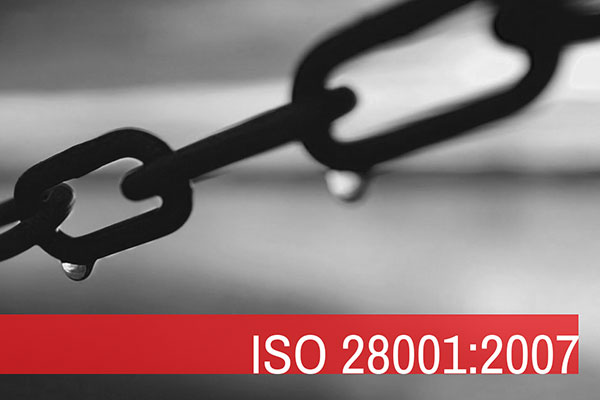
Advantages :
• Facilitates trade and expedite the transport of goods across borders.
• Monitors and manages security risks throughout your business and supply chain.
• Gains a competitive advantage and new business opportunities.
• Allows management to focus finite resources on areas of greatest concern.
• Benchmarks your organization’s security management practices with international best practice.
• Achieves cost savings through a reduction in security incidents .
• Potential reduction in corporate insurance premiums.
• Gains opportunities to improve efficiency across working practices.
ISO 21001:2018 (Educational Organizations Management System) :
ISO 21001 is an international standard developed by the International Organization for Standardization which provides management tools for organizations that offer educational products and services. It intends to help educational providers meet students requirements and needs. ISO 21001 is based on ISO 9001 – Quality Management Systems, but it provides a specific framework for educational organizations that aim to enhance the satisfaction of their learners by improving the educational processes and ensuring conformity to learners’ requirements. The standard can be applicable to all organizations that provide a curriculum for the development of knowledge, skills and attitudes by means of different lecturing methods.

Advantages :
• Improve your education system.
• Enhance the reputation of your educational institution.
• Promote equal opportunities for all students regardless of their religious background, ethnic or cultural origin, gender, ability/disability.
• Provide personalized training and effective response to all learners.
• Stimulate excellence and innovation.
• Make education more accessible (physical or online settings).
What Our Client Says
“ hope you are doing well, once again thanks for your kind support in ISO certification, me and my team is very happy from your supports and cooperations, believe me i do not find the words to describe your hard work. hope and wish for your bright future!! ”
Mr. Mohamed
Manager | BALHAMBAR BOAT FACTORY
“ We are please to inform you & your team, that we are highly satisfied with your services (Consultancy of IMS) and the certification from CCPL. The ISO certification helped us to get the tender & project. We will recommend you to our friends. Thank you for your hard work. ”
Mr. Amanat
MD | New Orleans Trading & Contracting
“ Keep up the good work, your services finally meetour requirement for pre qualification. Compared to other ISO Consultancies in QATAR, your price and ISO Certificate is best. ”
